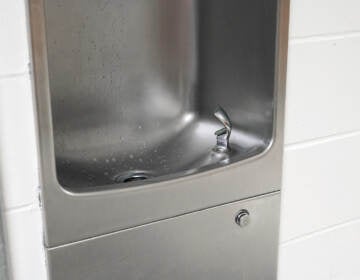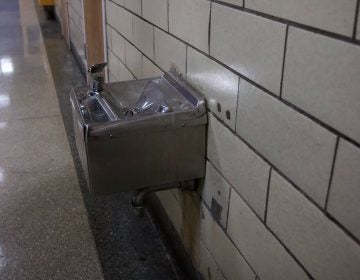First run was a debacle, so Delaware takes second shot at lead testing in schools
The initial sampling of faucets, fountains, and spigots was completed this spring, but the troubling results weren’t released to the public until October.

(leungchopan/Big Stock)
It’s basically back to square one for lead testing in Delaware schools, more than two years the harmful metal was found in most buildings after every faucet, fountain, and spigot was sampled.
Results of the tests were first released publicly in October, revealing that 49 schools — one out every five in the state — contained levels above 7.5 parts per billion — the level set by federal regulators for shutoff.
The state order to shut off those faucets and fountains was only given a month later, after environmental advocates, parents, educators, and school board members castigated the Department of Education for delaying release of the data. They accused DOE of sloppy, inconsistent testing and communication, and urged them to screen students in affected schools for the presence of lead in their blood.
Elevated lead levels can cause developmental delays and other adverse effects on children.
Education officials, including secretary Mark Holodick, apologized profusely for the missteps during a November Zoom hearing attended by hundreds of concerned residents.
So starting next week, the state is essentially re-doing the testing.
Calling the program “resampling and retesting,” the state has hired Batta Environmental Associates and will spend up to $1.5 million to retest the nearly 150 fixtures that tested above the 7.5 parts per billion threshold, as well as all “consumption points” in all of the approximately 250 K-12 schools.
“It is critically important that we conduct additional water sampling that provides timely and accurate data regarding the quality of water that our students, staff, and school communities consume,’’ Holodick said in a written statement.
“This is also an important step to help restore confidence for the public. We want our children, their families, and our educators and staff to be able to concentrate on learning, assured that their buildings and water are safe.”
While the initial testing took about one and a half years, the new initiative is expected to take about three months. After the laboratory reviews are done, results and suggested action plans will be shared with leaders of the 19 school districts and about two dozen charter schools. Cognizant that the public did not immediately get results under the initial program, the state is pledging to post the information on a recently created website.
The department stressed this week that all fixtures that initially tested above 7.5 parts per billion have been turned off or had signage posted that said the water was not for consumption.
Purnima Montagne, president of the Delaware Parent Teacher Association, said she’s guardedly optimistic that the second round of testing will be better than the first.
“It’s a very good opportunity,’’ Montagne said. “There’s been a pretty big series of errors, which led to not just wasted money and effort, but lost time to get ahead of possible issues which affect real people.”

Molly Magarik, secretary of the state Department of Health and Social Services, said during the Zoom hearing that she’s not concerned “that students have been exposed to catastrophic lead levels such that universal testing and screening would be recommended.’’
She said concerned parents should contact their pediatrician for evaluation, and noted that lead is often contained in water pipes in private homes, and even in food.
Yet Montagne echoed others in a call for some state screening. She suggested officials “have a screening plan ready to roll out as soon as you find out that there is a water source that has a lot of lead in it.”
The bottom line for parents and teachers, Montagne said, is that “everything that they did wrong should turn into what they’re going to do right and better next time. Point for point.”
Amy Roe of the advocacy group Lead-Free Delaware says she’s skeptical that will happen. She said state education and health officials previously stymied her attempts to get answers about the testing and results, and have them reported to the public.

“All of the people who are responsible for this are the people who two months ago told us that we were wrong?” Roe said. “Now those same people are running this. So which version of them is believable?”
“You earn the right to be believed through honesty. And we haven’t had honesty for a very long time on this. Can we trust them now when it’s just the exact same actors?”

Get daily updates from WHYY News!
WHYY is your source for fact-based, in-depth journalism and information. As a nonprofit organization, we rely on financial support from readers like you. Please give today.







